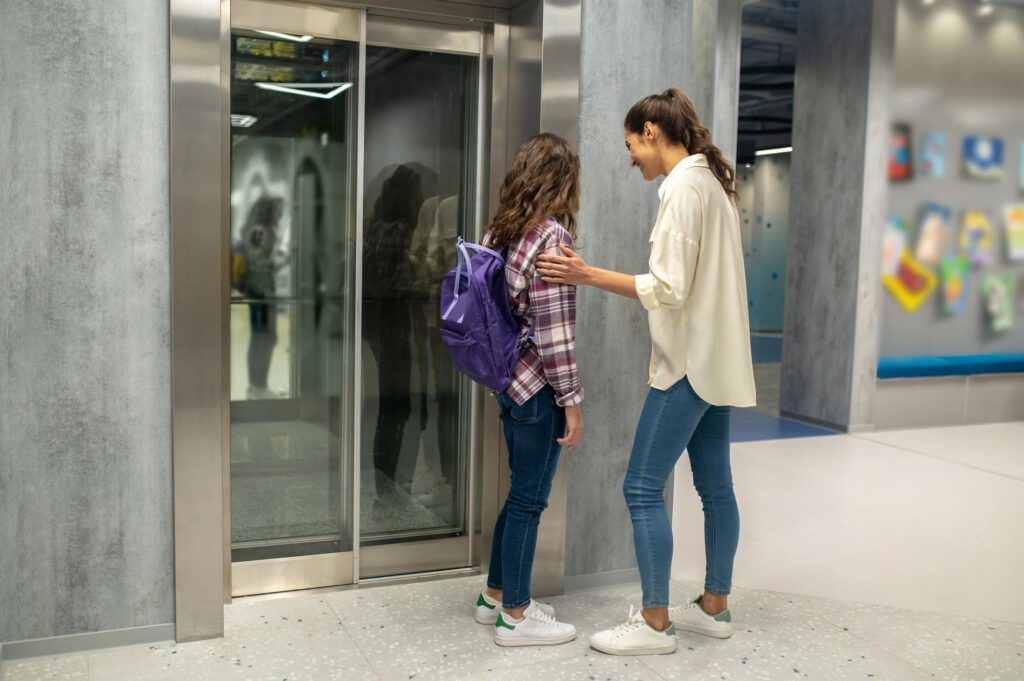Table of Contents
- What Is an Intensive Outpatient Program (IOP)?
- Is an IOP Right for Your Teen?
- Maintain Privacy with IOP Teen Treatment Programs
- Maintain the Support of Family and Friends
- Reduced Cost of Treatment
- Count on Clearfork Academy for Intensive Outpatient Programs
- Key Takeaways

What Is an Intensive Outpatient Program (IOP)?
An Intensive Outpatient Program (IOP) is a structured mental health and substance abuse treatment service. It allows teens to live at home and continue with their daily activities while receiving intensive therapy and support.
IOPs are designed for those who do not require medical detoxification or 24-hour supervision but still need a higher level of care than standard teen outpatient therapy.
The structure of IOPs typically involves multiple therapy sessions per week, each lasting several hours.
These programs can range from 9 to 20 hours per week, depending on the individual’s needs.
IOPs provide a blend of individual counseling, group therapy, educational sessions, and skill-building workshops.
The focus is on helping participants develop coping strategies, improve problem-solving skills, and establish a support network.
Sessions often cover topics like stress management, relapse prevention, and healthy communication.
Key features that distinguish IOPs from other treatment options include:
Intensity and Duration: IOPs offer more intensive care than standard outpatient programs, with more frequent and longer sessions. However, they are less intensive than inpatient or residential treatment programs.
Flexibility: IOPs allow participants to live at home and maintain their daily responsibilities, such as work or school, which is not possible with inpatient programs.
Focus on Transition: IOPs often serve as a step-down transition from inpatient care, providing a structured environment that supports reintegration into everyday life.
Support Network: Group therapy sessions in IOPs provide a community of peers who understand and share each other’s experiences, fostering a strong support network.
Comprehensive Care: IOPs address not only substance abuse or mental health issues but also the underlying causes and co-occurring disorders, offering a more holistic approach to treatment.
Cost-Effectiveness: IOPs are generally more affordable than inpatient treatment due to the lack of residential accommodations and 24-hour supervision.
In summary, IOPs offer a unique blend of intensity, flexibility, and comprehensive care.
This makes them a suitable option for teens seeking robust treatment without the need for round-the-clock supervision.
They provide a critical balance, supporting recovery and personal growth while allowing individuals to maintain their day-to-day responsibilities.

Is an IOP Right for Your Teen?
Determining whether an Intensive Outpatient Program for teens (IOP) is the right choice can be a challenging decision for parents.
IOPs provide a structured therapy environment, addressing a range of mental health and substance abuse issues, while allowing teens to live at home.
When considering an IOP for your teen, several key factors should be taken into account.
Severity of the Issue: IOPs are ideal for teens who need more support than weekly therapy sessions but do not require the intensive environment of inpatient treatment.
If your teen is struggling with moderate to severe issues that disrupt their daily life but do not pose an immediate danger to themselves or others, an IOP might be suitable.
Willingness to Participate: Success in an IOP depends significantly on the teen’s willingness to engage in the process.
It’s important to have an open conversation with your teen about the program and gauge their readiness to participate actively.
Support System: Consider your family’s ability to provide a supportive environment at home.
IOPs require a commitment from both the teen and their family, as the support and understanding of family members can greatly enhance the effectiveness of the treatment.
Types of Issues Addressed: IOPs commonly address a variety of issues, including anxiety, depression, substance abuse, eating disorders, and behavioral problems.
These programs use a combination of individual therapy, group therapy, family therapy, and educational sessions to teach coping skills, relapse prevention, and healthy communication.
School and Social Life: Evaluate how an IOP will fit into your teen’s academic and social life.
Most IOPs are designed to allow participants to continue with school, but the time commitment can be significant.
Ensuring that your teen can balance the demands of the program with their educational and social obligations is crucial.
Professional Assessment: Consulting with a mental health professional can provide valuable insight into whether an IOP is the best option.
A thorough assessment by a psychiatrist or psychologist can help identify the level of care your teen needs.
An IOP can be a powerful and effective tool for helping teens navigate complex mental health or substance abuse issues within the context of their everyday lives.

Maintain Privacy with IOP Teen Treatment Programs
Intensive Outpatient Programs (IOPs) offer a unique blend of privacy and support for teens undergoing treatment.
This is a significant advantage for families concerned about maintaining normalcy and confidentiality during a challenging period.
Privacy in Treatment: One of the key aspects of IOPs is the level of privacy they afford.
Unlike inpatient programs, where teens might have to explain a prolonged absence from school or social circles, IOPs allow them to receive treatment without making their struggles publicly known.
This discretion is crucial for teens who may feel stigmatized or uncomfortable sharing their mental health or substance abuse issues with peers.
IOPs provide a safe, confidential environment where teens can be open about their challenges without the fear of being judged or labeled.
Balancing Treatment with Daily Life: IOPs are designed to fit into a teen’s existing schedule, allowing them to continue with their educational and social activities.
This structure is beneficial as it enables teens to apply the coping strategies and skills they learn in real-time, within their daily contexts.
Continuity in education and maintaining social connections are essential for a teen’s development and can contribute positively to their mental health.
Support in Familiar Surroundings: By living at home while attending an IOP, teens can rely on the support of their families.
This home-based support is crucial in reinforcing the therapeutic work done during sessions.
It also allows family members to be actively involved in the treatment process, understanding the teen’s needs and progress.
Stigma Reduction and Empowerment: Attending an IOP can help reduce the stigma associated with mental health and substance abuse treatment.
Teens learn that seeking help is a sign of strength, not weakness.
By managing their treatment while continuing with their regular activities, teens often feel empowered and less isolated.
Confidentiality and Professionalism: IOPs are bound by strict confidentiality laws and ethical standards, ensuring that a teen’s personal information and treatment details are protected.
This confidentiality is critical for building trust between the teen, their family, and the treatment team.

Maintain the Support of Family and Friends
Maintaining the support of family members and friends during outpatient drug treatment programs, particularly in Intensive Outpatient Programs (IOPs), is a critical component of a teen’s recovery journey.
IOPs, with their unique structure, not only focus on the individual undergoing treatment but also actively involve the family in the therapeutic process, recognizing the pivotal role they play in the teen’s well-being and recovery.
Family Involvement in IOPs: IOPs typically incorporate family therapy as a key component of their treatment protocol.
This allows family members to gain a deeper understanding of the teen’s struggles, the nature of addiction, and the dynamics of recovery.
Family sessions provide a safe space for addressing conflicts, improving communication, and rebuilding trust.
By being involved, families learn how to support their loved ones effectively, creating a nurturing environment that can facilitate healing.
Enhancing Communication: Open and honest communication is crucial during the recovery process.
IOPs provide tools and strategies to both teens and their families to enhance their communication skills.
This improved communication fosters a supportive environment where teens feel comfortable sharing their feelings and challenges, knowing they will be met with understanding and empathy.
Educating Family and Friends: Education is a significant aspect of family involvement in IOPs.
These programs offer educational sessions that help family members and friends understand the complexities of addiction, the process of recovery, and the challenges that might arise.
This knowledge is vital in helping them provide the appropriate support and avoid enabling behaviors.
Building a Support Network: IOPs encourage the development of a broader support network that includes not only immediate family members but also close friends and other significant individuals in the teen’s life.
This extended support network can offer additional layers of encouragement and understanding, essential for long-term recovery.
Support Beyond the Program: The involvement of family and friends in IOPs also prepares them to provide ongoing support after the program concludes.
They become equipped with the skills and knowledge to help the teen navigate challenges and maintain sobriety in the long term.
Emotional and Psychological Support: Emotional support from family and friends is irreplaceable during recovery.
They become integral to the journey, offering love, understanding, and support that reinforce the teen’s commitment to a healthier, substance-free life.
Their presence, understanding, and encouragement can significantly boost the teen’s morale, self-esteem, and motivation to continue with their recovery journey.

Reduced Cost of Treatment
Intensive Outpatient Programs (IOPs) present a more cost-effective option for mental health and substance abuse treatment compared to residential or inpatient programs.
They offer significant financial benefits for families seeking effective yet affordable care.
Lower Overhead Costs: The most evident cost advantage of IOPs lies in their non-residential nature.
Unlike inpatient programs, IOPs do not require patients to pay for 24-hour care, room, and board.
This significant reduction in overhead costs directly translates to lower overall treatment expenses, making IOPs a financially viable option for many families.
Maintaining Employment and Education: IOPs allow individuals to continue with their daily routines, including work and school.
This continuity not only helps maintain a sense of normalcy but also ensures that the teen or family does not lose income or fall behind in education, which can be a financial burden associated with inpatient treatment.
Insurance Coverage: Insurance plans are more likely to cover outpatient services like IOPs compared to residential treatment, owing to their cost-effectiveness.
This coverage can substantially reduce out-of-pocket expenses for families, making mental health and substance abuse treatment more accessible.
Reduced Indirect Costs: The ability to live at home during treatment also cuts down on indirect costs such as travel, childcare, or taking extended leave from work.
These savings can be significant, especially for prolonged treatment durations.
Focus on Essential Services: IOPs concentrate on providing essential therapeutic services without the extra costs associated with residential care facilities.
This focus ensures that families are not paying for services or amenities that are not directly related to the recovery process.
Customized Treatment Length: The flexibility in treatment length and intensity in IOPs also contributes to cost-effectiveness.
Treatment plans can be tailored to the individual’s needs, avoiding the unnecessary expense of a standardized, longer-term residential stay.
In summary, IOPs offer a financially sensible alternative to residential treatment programs without compromising the quality and effectiveness of the care provided.

Count on Clearfork Academy for Intensive Outpatient Programs
At Clearfork Academy, we provide holistic teen rehabilitation services that prioritize long-term recovery and personal growth.
Our Intensive Outpatient Program provides a balanced approach to substance abuse treatment, allowing teens to live at home and maintain their day-to-day.
This IOP program can serve as a step-down process after completion of a Partial Hospitalization Program (PHP) program.
Our IOP program focuses on your teen’s emotional growth and coping skills development.
It includes three hours of group therapy, individual therapy, and family therapy as clinically appropriate.
We incorporate a variety of therapeutic modalities, including Cognitive-Behavioral Therapy (CBT), Dialectical Behavior Therapy (DBT), and experiential therapies like art, music, and yoga therapy.
Call us to learn more about our program! Our staff is ready to resolve any doubts that you might have!
We’ve had many teens successfully engage with our IOPs. Emma’s story is just one.
Emma’s Story
Sixteen-year-old Emma reluctantly stepped into the IOP for teens in Fort Worth, feeling a mix of anxiety and hope.
Hope that she can continue to manage her newfound sobriety.
Initially overwhelmed by the group therapy sessions, she soon found solace in the shared experiences and understanding of her peers.
The daily routine of counseling, skill-building activities, and educational workshops gradually transformed her apprehension into a newfound confidence.
Emma discovered coping strategies for her anxiety and began to view her challenges as opportunities for growth.
As the weeks passed, she not only improved her mental health but also forged lasting friendships, emerging from the program with a brighter outlook on life
She also showed a stronger sense of self, a deeper understanding of her addiction, and a renewed commitment to her sobriety.

Key Takeaways
- IOPs are designed for those who do not require medical detoxification or 24-hour supervision but still need a higher level of care than standard outpatient therapy.
- The focus is on helping participants develop coping strategies, improve problem-solving skills, and establish a support network.
- When considering an IOP for your teen, several key factors should be taken into account.
- A thorough assessment by a psychiatrist or psychologist can help identify the level of care your teen needs.
- Intensive Outpatient Programs (IOPs) offer a unique blend of privacy and support for teens undergoing treatment.
- Emotional support from family and friends is irreplaceable during recovery.
- Intensive Outpatient Programs (IOPs) present a more cost-effective option for mental health and substance abuse treatment compared to residential or inpatient programs.
- At ClearFork Academy, our Intensive Outpatient Program provides a balanced approach to substance abuse treatment, allowing teens to live at home and maintain their day-to-day.
- If you are seeking an IOP to help your teen, do reach out to us at Clearfork Academy.

Austin Davis, LPC-S
Founder & CEO
Originally from the Saginaw, Eagle Mountain area, Austin Davis earned a Bachelor of Science in Pastoral Ministry from Lee University in Cleveland, TN and a Master of Arts in Counseling from The Church of God Theological Seminary. He then went on to become a Licensed Professional Counselor-Supervisor in the State of Texas. Austin’s professional history includes both local church ministry and clinical counseling. At a young age, he began serving youth at the local church in various capacities which led to clinical training and education. Austin gained a vast knowledge of mental health disorders while working in state and public mental health hospitals. This is where he was exposed to almost every type of diagnosis and carries this experience into the daily treatment.
Austin’s longtime passion is Clearfork Academy, a christ-centered residential facility focused on mental health and substance abuse. He finds joy and fulfillment working with “difficult” clients that challenge his heart and clinical skill set. It is his hope and desire that each resident that passes through Clearfork Academy will be one step closer to their created design. Austin’s greatest pleasures in life are being a husband to his wife, and a father to his growing children. He serves at his local church by playing guitar, speaking and helping with tech arts. Austin also enjoys being physically active, reading, woodworking, and music.




